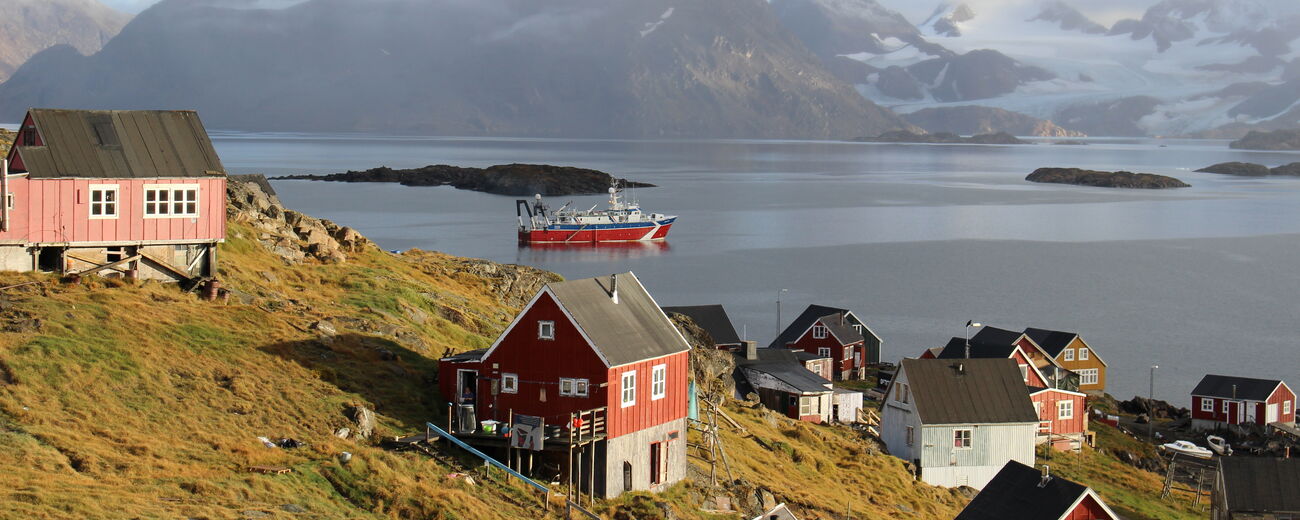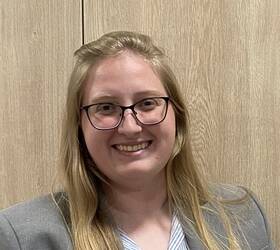The 2020 Arctic Innovation Lab
ISE students join digitally in pitching solutions to arctic issues

REYKJAVIK, October 26 - Each year, the Arctic Innovation Lab has been held as part of the Arctic Circle conference, where students pitch ideas that help promote sustainable development in the Arctic. This year, the event took to a digital stage, and was held on October 9th on Zoom. The lab showcased fresh new ideas from politicians, leaders, and students active in the field and was co-organised by the Arctic Initiative at the Harvard Kennedy School's Belfer Center in partnership with the Luleå University of Technology, the Fletcher School of Law and Diplomacy at Tufts University, and the Iceland School of Energy at Reykjavík University.
This year ISE students Noelle Fischer, Matthew Villante, and Arkaitz Manterola took to the stage. The task before them was to address a problem faced in the Arctic and provide a sustainable and innovative solution. With an idea in mind, students were asked to formulate a two-minute pitch to be presented to a panel of judges and audience members. From there, the judges would evaluate each pitch and the top five were rewarded. Audience members had the opportunity to ask questions and ultimately select their favourite pitch.


Matthew Villante (left) and Arkaitz Manterola (right) worked as a pair to pitch their idea entitled Methane Hunters: Securing a Sustainable Energy Future for Arctic Communities investigating how to capture methane leaks from melting permafrost. By using a modular methane capture system and existing landfill gas capture techniques, harvested biogas could be used as an alternative fuel to diesel in generators for local communities. Arkaitz explained,
This way, we would not only help improve the energy security and independence of local communities, boosting their local economy, but also, decrease the environmental impact of methane emissions in the Arctic.
The duo's idea was voted as an audience's favourite and they both were grateful to have participated in the lab. For Arkaitz, he found the variety of approaches available when trying to improve a region to be the most enlightening. Matt added,
My main takeaway from the experience was the diversity of issues that Arctic communities face today. It was a great opportunity to learn about new challenges facing the Arctic.

Noelle Fischer presented a different idea which gained interest from judges. Entitled Curbing Microplastics in the Arctic by Implementing Trash Vacuums in the Arctic Ocean, her project focused on a filtration system that captured and separated microplastics from the ocean. Noelle explained, "In a recent study conducted in Northeast Greenland discovered that there were 14,000 microplastics per liter of water and that the Arctic Cod's stomach contained 35% microplastics. Therefore, a device that can filter the microplastics in the subsurface water level will lead to more plentiful and healthier Arctic fish, while also ridding the Arctic Ocean of microplastics." Noelle shared her belief in the potential of her project and that she would like to pursue it further. She commented,
From hearing other people's two-minute speeches, I was enlightened when I heard not just about science-driven approaches, but also about more societal-driven approaches.
All three students shared that this experience was fun and insightful and that they would love to participate again either as a presenter or an audience member. To Matt, it was a great opportunity to learn about new challenges facing the Arctic. Arkaitz shared that he would definitely think of participating again, even if it is just to listen to new ideas that could be used to promote the Arctic ecosystem and community as a whole. We at ISE are proud to have students continue to participate in the Arctic Innovation Lab.
Congratulations to Noelle, Matt, and Arkaitz for their hard work and participation!
